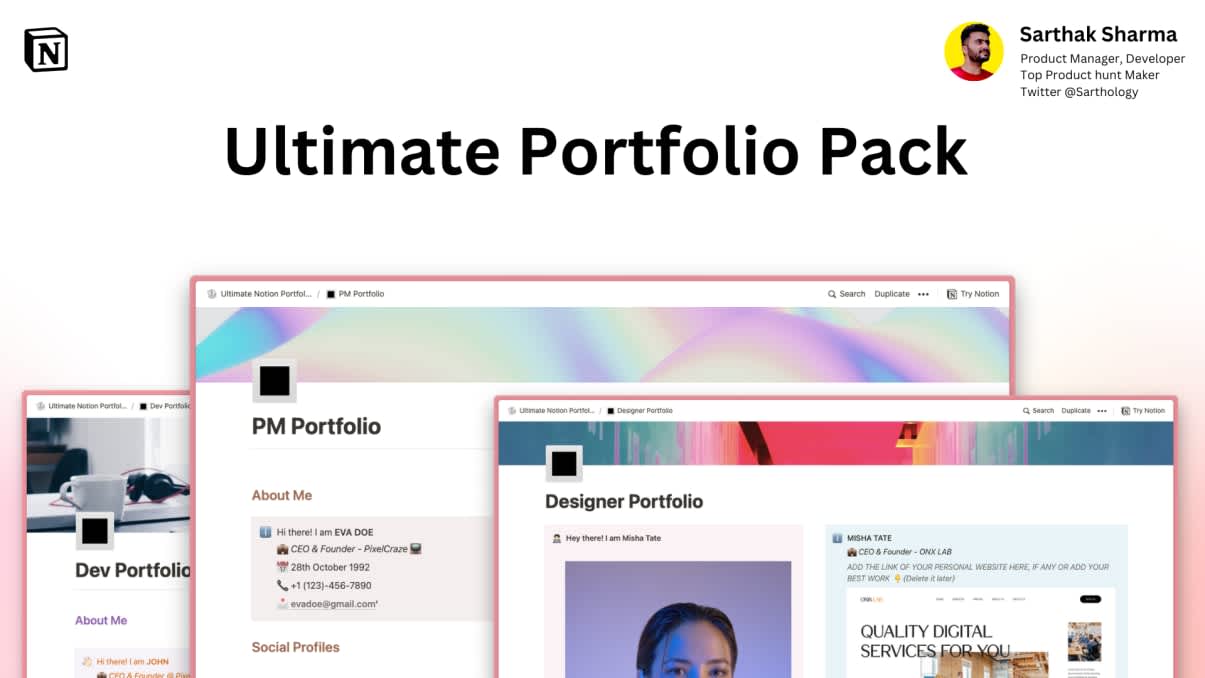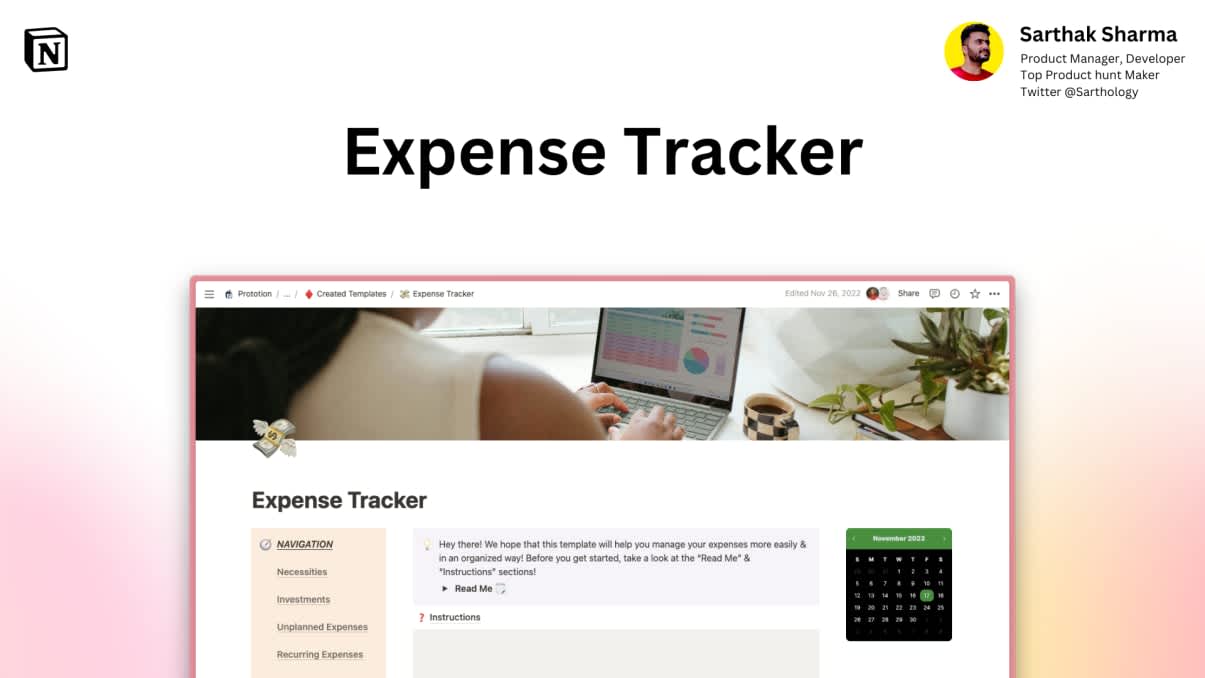Getting started with Notion | Docs and sharing

Ultimate Portfolio Pack
A game-changing collection of Notion portfolios that revolutionize how you showcase your professional journey. 💯
Get it Now
Expense Tracker
Mismanaged budgets are a thing of the past! Stop worrying, Start tracking!
Get it NowWelcome to Prototion blog! If you're starting out with Notion, we'll provide you a jumpstart for your journey!

When to create docs
The question of how best to organize files on a team so they are maintained and all find and use them is a perennial challenge. This is true in every system—Google Docs, wikis, Confluence, Dropbox, Quip, Notion, and other team shared docs.
Online documents die when they are unmaintained or don't have readers. This can be because they are forgotten or lost, they become out of date due to lack of maintenance, or people lose trust in them.
The way to counteract this is:
- Have clear ownership: Even if docs are collaborative, someone "owns" keeping the doc maintained and of high quality. ("Wisdom of the crowd" does not mean "no ownership.")
- Maximize audience: In general, write for and share with the largest audience unless there are good reasons not to (privacy, security, confidentiality, sensitivity, immaturity, etc.). Keep things organized so they can be found.
- Minimize number of documents: Other things being equal, fewer docs are easier to manage and have a bigger audience.
The next question is, how many docs should you create, exactly?
As few as possible, but not too few! In general, a good principle is to divide things into a single doc only when three considerations align, and separate them if any of these are different:
- Owner: The one person ultimately responsible for the doc.
- Update cadence: Is this a write once and later forget thing? Or is it long lived? And if so, how frequently is it updated? Ad hoc or on a schedule?
- Audience: Is it company internal, group internal, for customers, or for the whole web?

Sharing and permissions
- Notion is nice for adding external guests and collaborators, but as with any enterprise tool, you have to be aware of the complexities of permissions and what you share with whom.
- It's possible to add people as full members, or as guests to specific pages—and sub-pages.
- If you organize folders in a sensible hierarchy, it's easier to add people in a clear and understood way. For example, if all engineering work is under a page Engineering, you can add a guest contractor to that page and they'll get access to all sub-pages, and you can still be sure they don’t have overly broad access.
- Guests can't create new pages. If you want someone to be able to add new pages, you'll have to add them as a member and be aware they'll have access to all other team-visible pages.
So, it's pretty easy to create and share docs with your co-workers, friends, and family! Give this feature of Notion a try, and don't forget to check out our amazing collection of free and premium templates!



